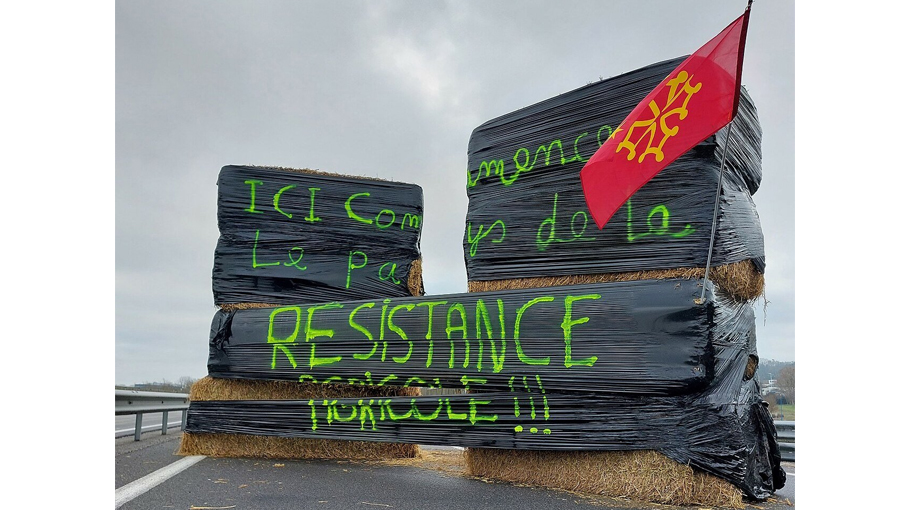European farmers stood up to free trade, will US farmers?

Dumping manure in public spaces, hurling eggs at government buildings, blocking major roads – the European farmers who have taken to the streets to challenge free trade policies sure know how to raise a ruckus.
Their public disruption also produced results. French farmers, for instance, managed to persuade their nation’s leaders to ban food imports treated with thiacloprid, dedicate € 150 million (~$163 million) annually to support livestock producers, and provide European-wide definitions for what constitutes lab-grown meat. German farmers also saw movement in their favor from their lawmakers on fuel subsidies.
When protests reached Brussels – where the European Parliament was in session – European Union policy makers announced plans to cushion the blow from Ukraine grain imports and address bureaucratic red tape. Seeing such gains as only the beginning, Spanish, Italian, and Flemish farmers vow to remain in the streets. Thus far, the protests offer some takeaways for food and farm activists.
Specifically, not only can public disruption trigger real change, but there is room to push back against the disastrous free trade policies that have wreaked havoc on farm economies on both sides of the Atlantic.
US farmers and their allies should pay attention, perhaps thinking how to make protest part of our ongoing Farm Bill debate.
In Europe, the Common Agricultural Policy (CAP) – similar to the Farm Bill in the United States – governs most facets of the continent’s agricultural system, including financial assistance, environmental policy, and the regulation of exports and imports.
Beginning in 1962 with France, Germany, Luxembourg, Belgium, Italy, and the Netherlands, the arrangement has grown along with the European Union to cover all of the organization’s 27 member states.
CAP policies began to change in the 1990s with the MacSherry and Agenda 2000 Reforms to promote “efficiency.” While Reagan railed against “government cheese” to point out the assumed wasteful nature of US agricultural policy in the 1980s, in Europe, “wine lakes” and “butter mountains” were made into campaign slogans to cut public assistance for farmers.
And cuts took place – from 1980 to 2021, the total EU budget dedicated to agriculture went from over 60% to below 25%. Many policies were also eliminated, including export subsidies, production quotas in dairy, and price supports that were coupled to farmer income.
Such changes brought European agricultural policy into alignment with the World Trade Organization’s (WTO) push for states to reduce government intervention into agricultural markets and increase production. Decades of promoting such free trade initiatives have not been kind to farmers, especially in Europe.
In France, for instance, there were 389,000 farmers in 2020 – almost 800,000 fewer than in 1980. Poland, which joined the EU in 2004, since 2010 has lost 13% of its producers. Overall, throughout Europe from 2005 to 2020, the continent has seen 37% of its farms go out of business. During that same time, production has grown, as only farms of over 200 hectares (approximately 400 acres) have increased in number.
Meanwhile, the ever-dwindling financial support for European farmers is made contingent on meeting various environmental and labor standards.
Anthony Pahnke is a Professor of International Relations at San Francisco State University.
CounterPunch


